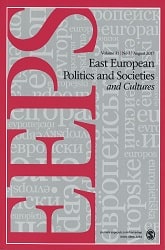A Different Type of Gender Gap: How Women and Men Experience Poverty
A Different Type of Gender Gap: How Women and Men Experience Poverty
Author(s): Éva Fodor, Lilla VicsekSubject(s): Gender Studies, Social differentiation, Family and social welfare, Post-Communist Transformation, Socio-Economic Research
Published by: SAGE Publications Ltd
Keywords: gender; poverty; masculinity; Hungary; post-communism; feminization of poverty;
Summary/Abstract: While recent surveys do not find that poverty is feminized in post-communist Hungary, this project explores gender differences in the experience of destitution. Drawing on a content analysis of in-depth interviews in twentyseven very low-income households, the author exposes the particularly gendered daily practice of poverty in Hungarian families. The author argues that one of the major gender differences in the experience of poverty is that men often find themselves in a gender role crisis when they are too poor to function as successful breadwinners. Women, on the other hand, tend to feel their roles as caretakers intensified and thus avoid a conflict with (newly) hegemonic ideals of femininity. As a response, poor marriedcouple families devise ways in which they try to alleviate men’s gender shame. The goal of the article is to identify four such strategies, which are used by poor couples to devise livable alternatives to hegemonic gender roles.
Journal: East European Politics and Societies
- Issue Year: 20/2006
- Issue No: 01
- Page Range: 14-39
- Page Count: 26
- Language: English
- Content File-PDF

